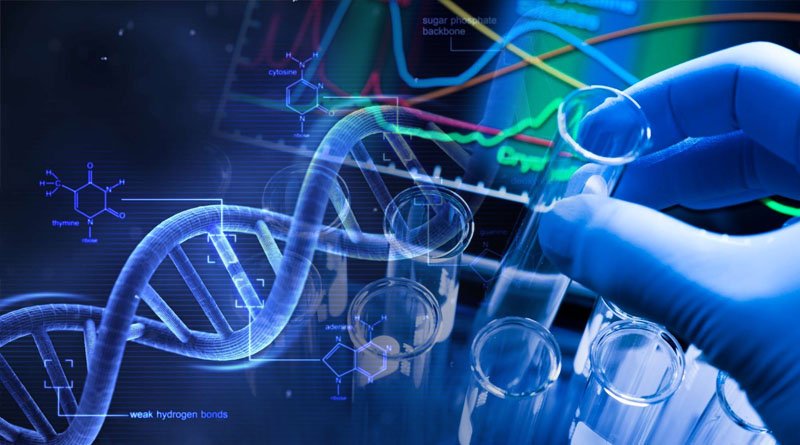Pharmacogenomics is the application of genomics in pharmacology to delineate the individual response to drugs due to genetic variations.

Pharmacogenomics is the application of genomics in pharmacology to delineate the individual response to drugs due to genetic variations. It explains the genetic variations affecting pharmacodynamics and pharmacokinetics of drug.
The genetic variations are due to mutations in the single gene known as Single Nucleotide Polymorphism (SNP). SNPs occur at a very high rate in every individual at a rate of 1 in every 1000 nucleotides and their pattern is different in every individual. For example, breast cancer is caused by SNP in one of the BRCA1 or BRCA2 genes.
The prevalence of side effects of drugs is very high worldwide. In the US alone, 2 million people experience drug-related serious side effects every year. The only solution is to prescribe medicine based on the biological and genetic profile of an individual patient.
It helps to avoid the side effects occurring due to drug response. The right amount of drug is prescribed to the right person. Consequently, the main focus of pharmacogenomics or personalized medicine is to find the genes encoding proteins involved in ADME (Adsorption, distribution, metabolism, and excretion) of a specific drug.
DNA sequencing and high throughput genotyping are used in pharmacogenomics for the genome-wide analysis of individual patient. Subsequently numerous novel genes and pathways have been found that affect the response of specific drugs.
Recently, pharmacogenomics has been used to improve the treatment of various diseases mainly genetic disorders. For instance, Tamoxifen is a potent estrogen inhibitor and is used in the treatment of breast cancer. Patients show fast to intermediate to slow responses to this drug due to genetic variation in the cytochrome p450 2D6 gene which metabolizes Tamoxifen.
Warfarin used to treat thromboembolism as an anticoagulant. It also shows some side effects such as bleeding and thrombosis due to genetic variations in CYP2C9 and VK0RC1 genes involved in the metabolism of Warfarin.
Pharmacogenomics algorithms are used to predict doses of Warfarin. Clinicians can use these algorithms available online or by using the smartphone app iWarfarin.
Several advancements are expected in the field of pharmacogenomics such as SNP chips. These chips are thought to carry all the SNP information of an individual’s SNPs. This chip information would be used in the future to prescribe the correct dose of medicine.
However, developing countries including Pakistan face many challenges which restrict the development of pharmacogenomics. The biggest obstacle is financial constraints and a lack of trained professionals.
The process of personalized medicine is very expensive because it would need to sequence and genotype the genome of every individual patient. Similarly, there is no national pharmacogenomics database in Pakistan due to the limited data available on the genetic variations in the Pakistani population.
Therefore, it is a need of time to increase research in the field of pharmacogenomics so that more advancements are made and universities should offer degrees in pharmacogenomics so that its interest is developed among the young population of developing countries.
“The best and most efficient pharmacy is within your system” -Robert C. Peale
This article is jointly authored by Laraib Abbas Khan, Laraib Ali Khan & Hafsah Bint Ilyas